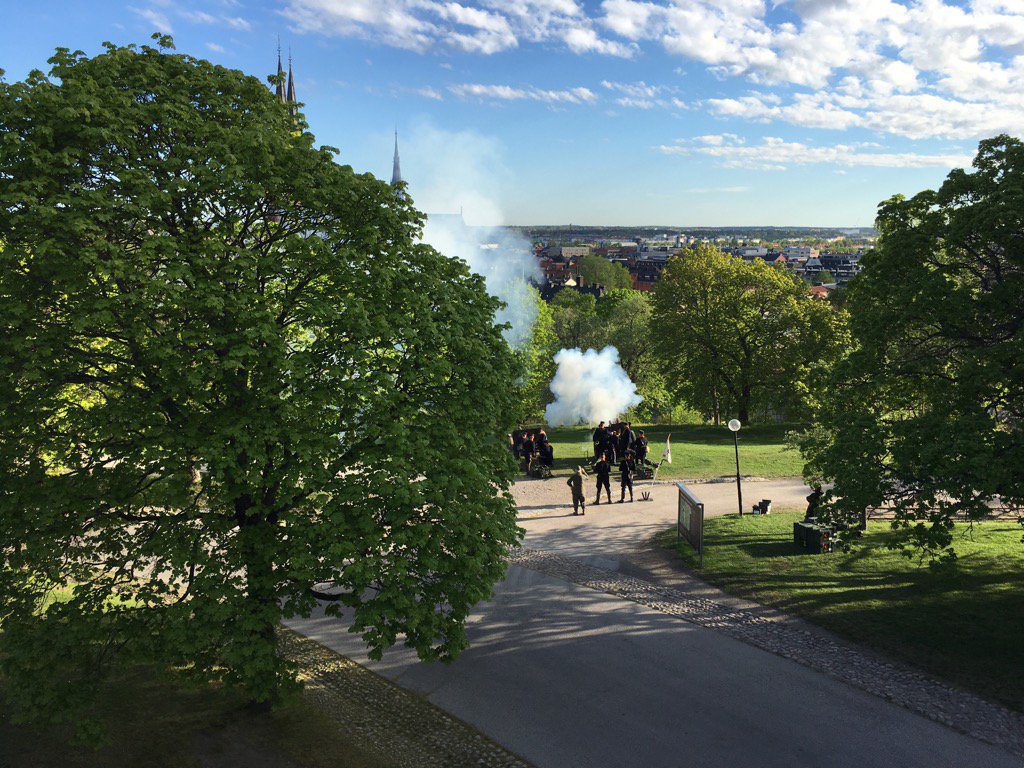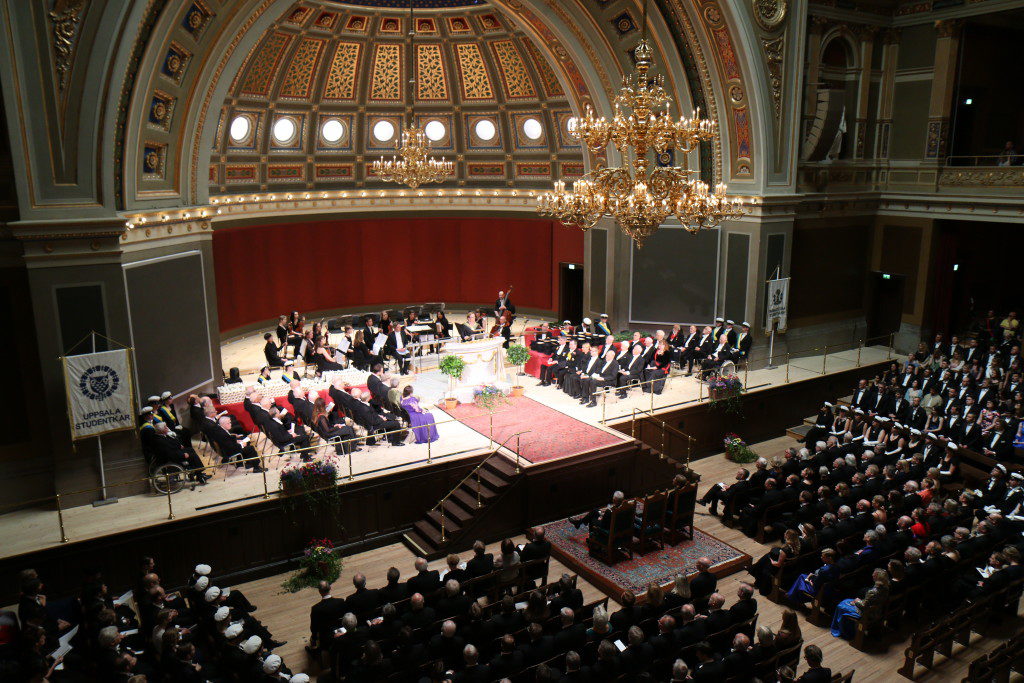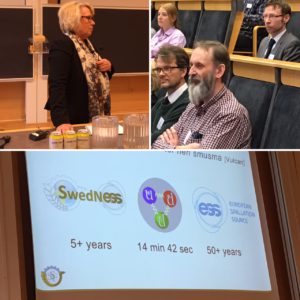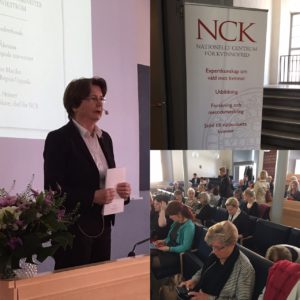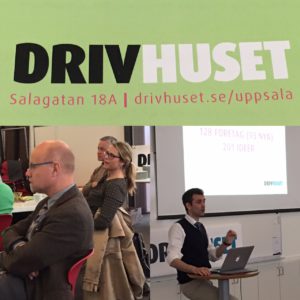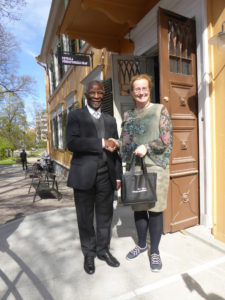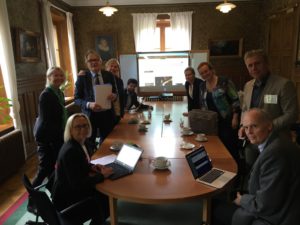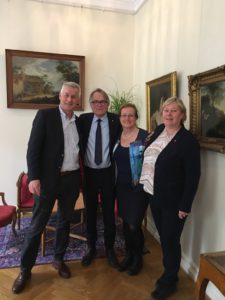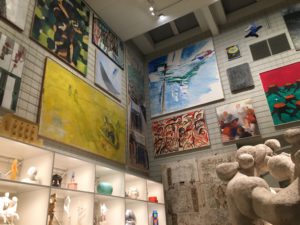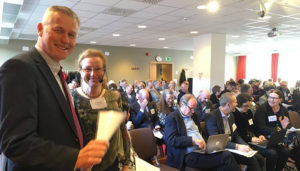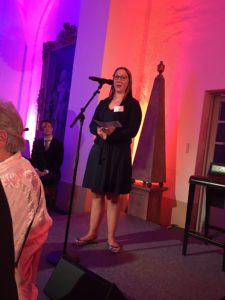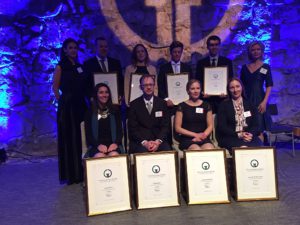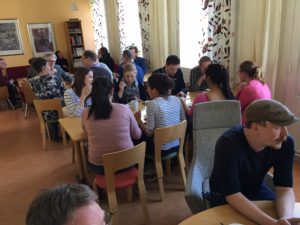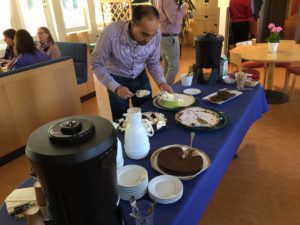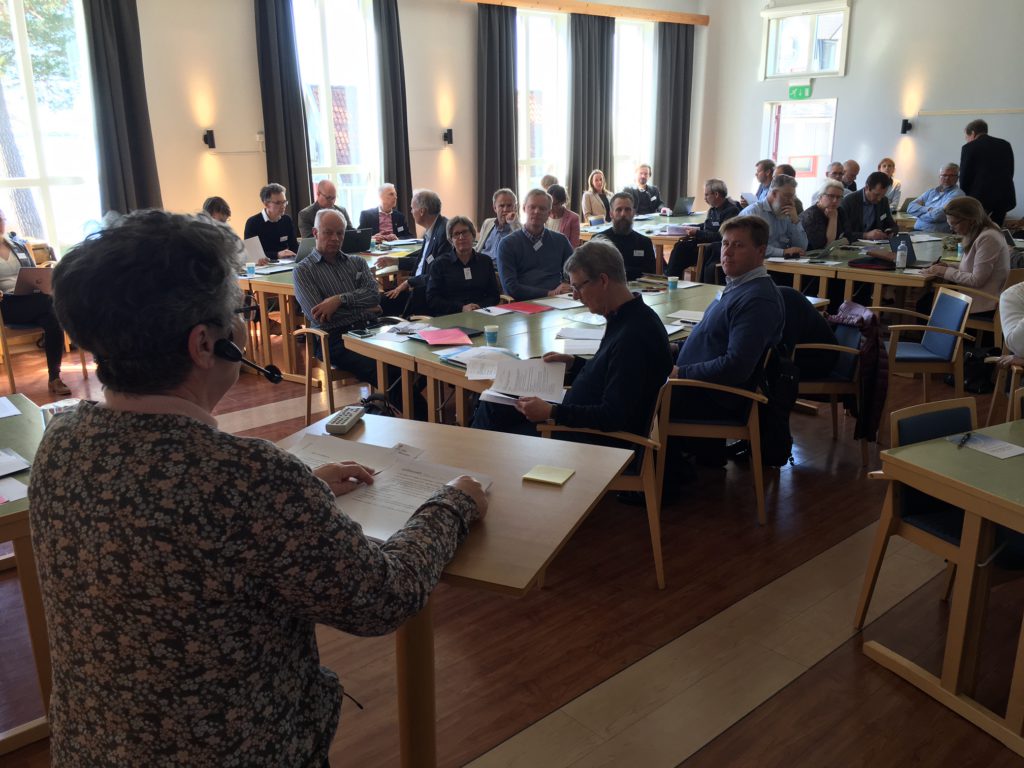Uppsala is delightful at this time of year and today at last it was time for the Spring Conferment Ceremony.
The conferment ceremony does not go unnoticed in this city. The celebrations began as early as 07:00, with a cannon salute from Uppsala Castle carried out by Jämtlands fältartilleri, as tradition dictates. At 08:00, the great cathedral bell rang out in honour of the University and all the new doctors.
After the temporary move to the cathedral, we were at last back in the University Main Building for the grand ceremony. Even though the renovation is not quite finished, the scaffolding is still there and it smells a little newly painted, it felt wonderful to be ‘home’ for the conferment ceremony. The floor was polished, the pots full of flowers, everything was nearly back to normal. Many people had lent a hand with cleaning and fixing things up so that we could hold the ceremony in the Main Building. It’s almost exactly 130 years since the building was inaugurated. The official reopening is not until the autumn, when the University reaches the age of 540, on 6–7 October.
The ceremony in the Grand Auditorium began with a procession led proudly by the massed flags of all the Uppsala nations and students’ unions, accompanied by the Royal Academic Orchestra. Today we were able to confer doctor’s degrees on 130 new doctors from eight of the University’s nine faculties. Impressive!
The Vice-Chancellor’s welcome speech pays tribute to our doctors and jubilee doctors and describes current developments at the University. You can read the speech here. The Faculty of Medicine’s degree conferrer, Professor Ulf Landegren, then gave a lecture on the topic of molecular tools for health assessments.
Those who received their doctorate fifty years ago are known as jubilee doctors. This year 39 of them chose to take part in the conferment ceremony. The President of the Uppsala Student Union, Daniel Simmons, gave a speech paying tribute to them. The jubilee doctors’ speech was delivered by Leif Lewin, Professor Emeritus of Government. As usual, the music during the ceremony was brilliantly performed by our own Royal Academic Orchestra conducted by Director Musices, Professor Stefan Karpe.
Our ceremonies are an image of our University, bringing together education and research, young and old, our future and our history. You can read more about the ceremony, our new doctors and jubilee doctors in the conferment ceremony book (in Swedish). There you will also find an essay by Professor Tore Frängsmyr on Uppsala University’s first professor of the history of science and ideas, the humanist Johan Nordström.
After a few hours in the Grand Auditorium, it was pleasant to mingle in more relaxed style at the receptions at the Faculty of Law and the Faculty of Theology. Now it will soon be time for the banquet at the Castle, with more than 700 guests dressed to the nines. There’ll be more speeches, good food, more music and dancing, far into the bright spring night.

